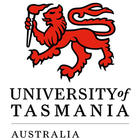- News and articles
- Find usIDP AustraliaIDP BahrainIDP BangladeshIDP CambodiaIDP CanadaIDP ChinaIDP EgyptIDP GhanaIDP Hong KongIDP IndiaIDP IndonesiaIDP IranIDP JordanIDP KenyaIDP KoreaIDP KuwaitIDP LebanonIDP MalaysiaIDP MauritiusIDP Middle EastIDP NepalIDP New ZealandIDP NigeriaIDP OmanIDP PakistanIDP PhilippinesIDP Saudi ArabiaIDP SingaporeIDP Sri LankaIDP Taiwan, ChinaIDP ThailandIDP TurkeyIDP UAEIDP VietnamIDP Corporate
- Social
- English
- Where we operate
- Courses
- Scholarships
- IELTS
- About IDP
- Student Essentials
- News and articles
- Find us
- Find us
- Find nearest IDP offices
- IDP Australia
- IDP Bahrain
- IDP Bangladesh
- IDP Cambodia
- IDP Canada
- IDP China
- IDP Egypt
- IDP Ghana
- IDP Hong Kong
- IDP India
- IDP Indonesia
- IDP Iran
- IDP Jordan
- IDP Kenya
- IDP Korea
- IDP Kuwait
- IDP Lebanon
- IDP Malaysia
- IDP Mauritius
- IDP Middle East
- IDP Nepal
- IDP New Zealand
- IDP Nigeria
- IDP Oman
- IDP Pakistan
- IDP Philippines
- IDP Saudi Arabia
- IDP Singapore
- IDP Sri Lanka
- IDP Taiwan, China
- IDP Thailand
- IDP Turkey
- IDP UAE
- IDP Vietnam
- IDP Corporate
- Social
- Language Switcher
- IDP Education /
- Colleges and Universities /
- Australia /
- University of Tasmania (UTAS) /
- Master of Chemistry - Synth...


Location
Australia
Qualification
Masters Degree (Coursework)
Fees
AUD41667
(2025)
Duration
2 Year(s)
Next intake
22 July 2025
Entry Score
6.0
IELTSCourse info
Phase 1: Transition (Theoretical Foundations): In the initial phase, you'll dive into the theoretical foundations of chemistry, setting the stage for your future exploration. Depending on your chosen stream, you'll develop advanced knowledge in either Synthetic and Materials Science, or Analytical and Environmental Science. These concepts will serve as the foundation upon which you'll analyse complex problems and craft innovative solutions.
Phase 2: Mastery (Practice of Chemistry): This phase focuses on the practical application of chemistry, putting your theoretical knowledge into action. You'll engage with real-world problems and the latest advancements in the field, hone your problem-solving abilities, become aware of the regulatory frameworks governing chemical handling in workplaces, and build your research and technical skills. In doing so, you will learn project design, safety assessment, data collection using our cutting-edge facilities and instruments, and effective communication – all essential skills for a successful chemist.
Phase 3: Research (Thesis and Real-World Engagement): The research phase completes your learning journey, where you'll work on a thesis with one of our research groups, collaborating with world-renowned academics on projects related to sustainability, new materials, and environmental chemistry. Your projects may involve designing therapeutic agents for disease treatment, creating renewable materials to replace fossil fuels, or developing innovative analytical instruments for health and environmental monitoring. This phase pushes you to further refine your advanced techniques, problem-solving capabilities, and communication skills.
By participating in this course, you will become highly proficient in chemistry, and gain a range of valuable skills that are highly sought-after by industry employers and research institutions. Whether you're interested in pursuing a career in chemistry, or aiming for advanced research degrees, this course serves as a robust pathway to both.
- Scholarships View all scholarships
- Internships
Entry requirements for University of Tasmania (UTAS)
Bachelor of Science (or equivalent course) with at least a minor in Chemistry or equivalent and an average >65% for the chemistry units.
Application Deadline
The application deadline isn't available Speak to an IDP counsellor for more detailed information
Further information
If you aren't eligible for the above entry requirements, you might ant to explore pathway options at University of Tasmania (UTAS). If you want to find out more, speak to our counsellors.
THE World Ranking
251st / 1250
THE World RankingWhat our students think
We’ve haven’t received any reviews for this institution yet.
Recommended for you
- THE World Ranking:351
- Graduate Certificate
- Toowoomba , Australia
- Next intake:05/2025
- Entry Score: IELTS 6.5
- AUD18800 (2025)
- THE World Ranking:77
- Graduate Certificate
- BRISBANE , Australia
- Next intake:07/2025
- Entry Score: IELTS 6.5
- AUD26880 (2025)
- Masters Degree (Coursework)
- Armidale , Australia
- Next intake:06/2025
- Entry Score: IELTS 6.5
- AUD37296 (2025)
- Masters Degree (Coursework)
- Armidale , Australia
- Next intake:06/2025
- Entry Score: IELTS 6.5
- AUD37296 (2025)
- THE World Ranking:251
- Masters Degree (Research)
- Melbourne , Australia
- Next intake:12/2025
- Entry Score: IELTS 6.5
- AUD37440 (2025)
- THE World Ranking:201
- Masters Degree (Coursework)
- Wollongong , Australia
- Next intake:07/2025
- Entry Score: IELTS 6.5
- AUD37776 (2025)
- THE World Ranking:251
- Masters Degree (Research)
- BENTLEY , Australia
- Next intake:07/2025
- Entry Score: IELTS 6.5
- AUD38000 (2025)
- THE World Ranking:251
- Masters Degree (Research)
- BENTLEY , Australia
- Next intake:07/2025
- Entry Score: IELTS 6.5
- AUD38000 (2025)
Your action plan
Step 1
Shortlist your courses
Choose the best three courses you’re most likely to pursue.
Step 2
Check your eligibility
Get an instant in-principle offer for courses with the IDP FastLane tag.
Step 3
Apply through IDP Live
Fill out the form once and use it to apply to multiple courses.
How does IDP FastLane work?
With the FastLane 'Offer in Principle', you'll know in minutes if you'll be accepted!
Select an institution and course
Create your academic profile
Submit your application for an 'Offer in Principle'
Your chosen institution(s) will send you a decision in minutes!
Get ready to apply with an expert counsellor




